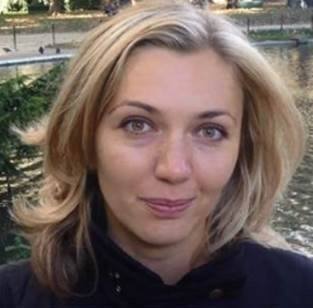 Recent global research by MIT’s Sloan Center for Information Systems Research quoted in the Wall Street Journal found that firms that “share business technology across units and departments grow faster and have lower costs than rivals that don’t do it as much. By taking advantage of what they already do well, these firms can devote more energy to real innovations.” And this is exactly what insurance companies are struggling with – bringing new products to market and catching up with digitally-demanding consumers.
Recent global research by MIT’s Sloan Center for Information Systems Research quoted in the Wall Street Journal found that firms that “share business technology across units and departments grow faster and have lower costs than rivals that don’t do it as much. By taking advantage of what they already do well, these firms can devote more energy to real innovations.” And this is exactly what insurance companies are struggling with – bringing new products to market and catching up with digitally-demanding consumers.
So why do companies deploy siloed solutions and continue to keep their processes separate?
It looks like there are several reasons. The first one might be a force of habit. Indeed, the insurance industry is a conservative one where new technologies are pretty slow to be adopted. The second is that insurers are often IT companies, with hundreds or thousands of developers, architects, and DBAs, and it is tricky to reduce or train such a large manpower. The third is that there are only two ways to modernize an existing IT landscape:
- Address digital needs and time-to-market, which almost always disrupts business and costs a lot for a mitigated result, or
- Develop new ad hoc applications on top of existing forty-year-old legacy systems, which is also costly and difficult to maintain with a poor reusability or agility.
MarkLogic is certainly one of the most successful reusable technologies on the market – and has been in this category for more than 15 years. Below are two examples from different sectors where industry leaders successfully deployed MarkLogic across various departments to manage their mission-critical projects and data. MarkLogic helped deliver the 2012 Olympics experience to BBC customers worldwide. BBC was looking to provide fans of the Olympic Games with real-time updates and replay as well as multi-screen interaction with a single data layer for many users.
MarkLogic was selected due to our ability to manage multiple content formats – video, editorial and statistical data. We were able to deliver and deploy our platform to meet the fixed Olympic schedule. MarkLogic has market-leading scalability to support tens of thousands of transactions per second and deliver them onto any device, anytime and anywhere.

Following this success, we continued to partner with BBC and were asked to solve another use case for them, the iPlayer. This project represents an integrated metadata management at scale with iPlayer TV Streaming.

Deutsche Bank, a tier-one global investment bank, was struggling to provide its risk and compliance personnel with a quick way to access regulated trade data. MarkLogic’s multi-model database made it possible for Deutsche Bank to easily handle structured and unstructured data in one platform. Specifically, MarkLogic’s native XML support allowed the company to ingest the company’s heterogeneous XML data without any ETL delays. As data is ingested, it is indexed, making this information available to end-users quickly. Using MarkLogic’s built-in full text indexes, risk and compliance analysts were able to pull up comprehensive trade information at sub-second speeds. Over 50 terabytes of trade data – and billions of documents – are currently stored in MarkLogic, and this volume is continuously growing.
This successful project led to another for which Deutsche Bank wanted to provide its employees with an integrated view of operational data in one platform. Originally, the bank’s information was stored in various formats – ranging from COBOL index files to Excel spreadsheets – across thousands of databases and tens of thousands of applications. Significant ETL processes were required to generate a unified view of trade event data for a single trade, for example. With MarkLogic, Deutsche Bank has built a single canonical data model, allowing the company to deliver information from thousands of sources to employees and applications across the globe. Multiple bank teams including risk management and compliance have reaped the benefits of a single database and search platform. They have saved a considerable amount of time they used to spend to explore information. They expect to handle over 25 billion documents in MarkLogic by the end of 2017.

Anastasia Olshanskaya
Anastasia Olshanskaya is MarkLogic’s solutions marketing manager for Financial Services and Insurance, looking after the messaging strategy and content creation. A linguist and marketeer, Anastasia has 15 years of experience in global marketing and communications roles in financial and media companies, such as Euromoney Institutional Investor and Thomson Reuters in the UK and France.

